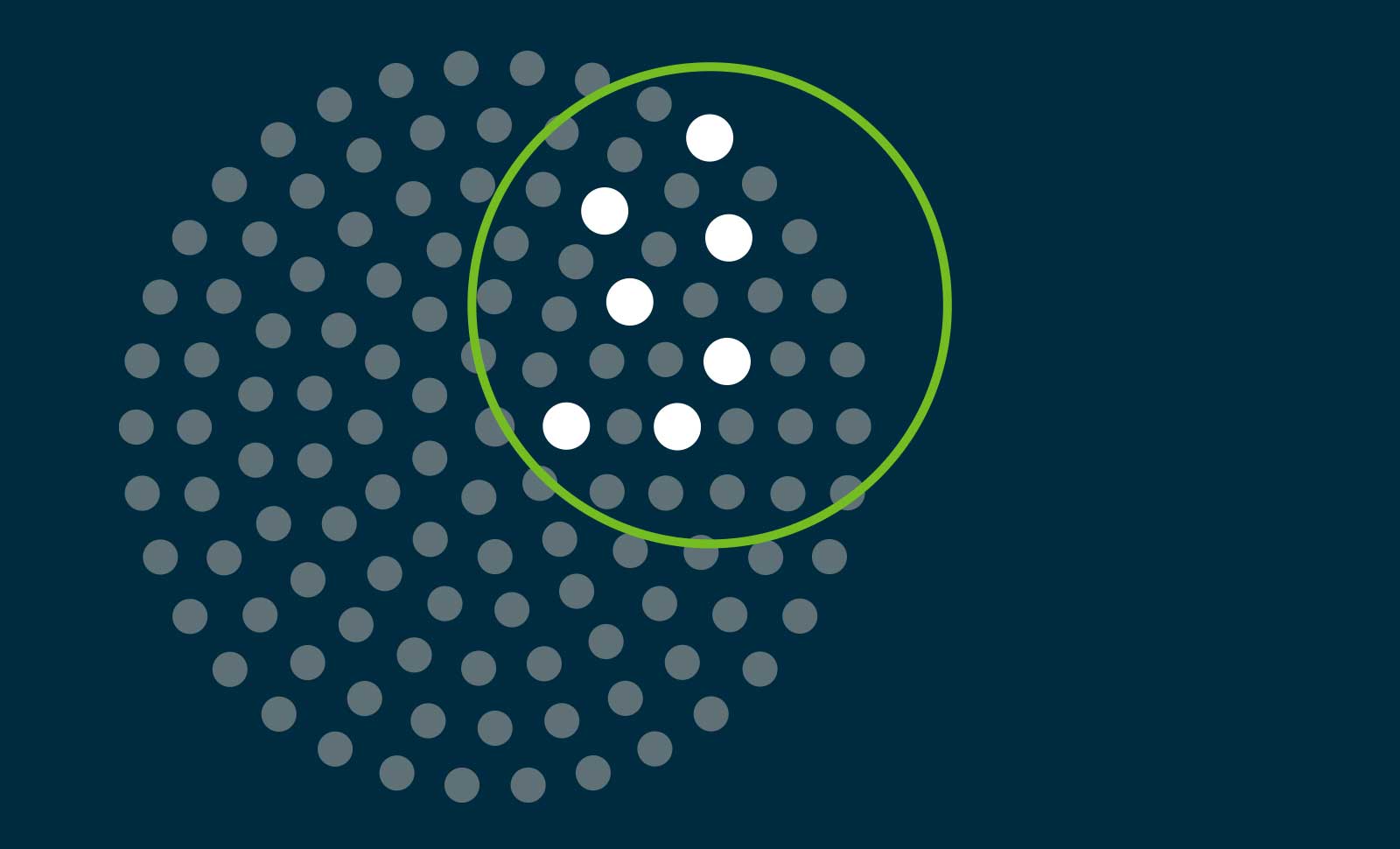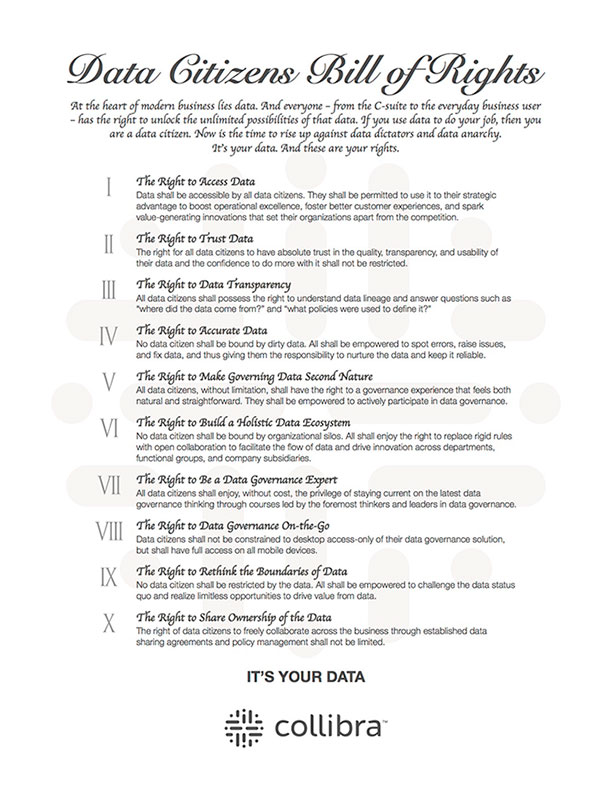Data Intelligence goals can be different to different people and organizations. We asked over 100 Data Citizens “What does Data Intelligence mean to you?” and we got back many thoughtful answers. After reading through all of the answers we noticed they focused around three main points: gaining value from your data, trusting your data, and acquiring business insights. We pulled our favorite answers to share with you.
What do you think? Tweet @Collibra #DataIntelligence with your answer.
Value
- A way of life to survive and become part of the data-driven world.
- The ability to empower the business to make informed business decisions.
- Bringing meaning and therefore value to data exchanged inside the company.
- Really — but really — understand the data.
- All the activities involved in making sure that the business can derive the most value out of its data.
- Achieving harmony and equilibrium between our ability to gather data and garnering insight from it.
- Using the right data at the right time to drive value.
- Using data to make better decisions.
- The capability to leverage data to acquire knowledge and drive actions.
- A commitment to offensive data management rather than defensive.
Trust
- Knowing what data does and how it can drive business performance whilst managing any associated risk.
- Making the most of the data you have. Trusting it and allowing the business to trust it.
- Trusted & understood data, accessible in a managed & easy way and exposed to all, to deliver value.
- Creating trustworthy information.
- Know your data, own your data, manage quality, democratize the data so it is better used by the community as trusted decision support.
Insight
- Enable others to access the right data to make informed decisions.
- Moving from questions to answers.
- Governing your data in order to generate meaningful and valuable insights.
- Use data in a way that improves our understanding and ability to succeed both in business and on a personal level.
- An opportunity to make an impact that matters for our clients.
- Knowing what data to use and why, in a strategic and timely manner, while in a simple and concise format, to accomplish a meaningful purpose.
- A holistic understanding of data.
- Collective understanding and decisioning.
- Understanding what is the art of the achievable, not accepting the status quo.
- A true understanding of the data. Where to find it, who’s using it, how’s it being used, where it’s from, how it’s governed.
- Respecting data as the strategic asset it is and using it to solve problems, innovate and deliver results for the business.




